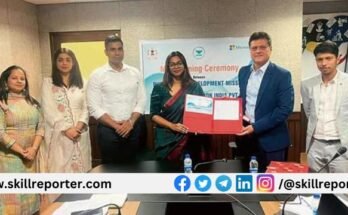New Delhi : In a bid to drive the ambitious ₹20,000 crore National Green Hydrogen Mission, the Government of India has announced plans to develop a skilled workforce of approximately 600,000 individuals over the next six years.
The Ministry of Skill Development and Entrepreneurship (MSDE) has conducted an in-depth analysis to identify the demand for skilled workers across the entire green hydrogen value chain up to 2030. This comprehensive study will form the foundation for a strategic skilling plan, to be developed in consultation with the Ministry of New and Renewable Energy (MNRE), a senior government official told ET.
The MNRE, which is the nodal ministry overseeing the National Green Hydrogen Mission, has also issued draft guidelines for skilling and aims to finalize them by the end of this month. These guidelines are currently open for stakeholder feedback until May 16.
According to the proposed guidelines, the skilling initiative will encompass short-term training, upskilling through the recognition of prior learning, and the establishment of centers of excellence at designated institutions. Additionally, long-duration training programs will be integrated into schools, industrial training institutes (ITIs), polytechnics, and higher education institutions. The green hydrogen value chain is segmented into five critical stages: renewable energy generation, hydrogen production, transformation, storage and transport, and end-user applications.
The government acknowledges that the development and deployment of hydrogen technologies will necessitate specialized skill sets. Consequently, a coordinated skilling program involving multiple institutions is essential. “A significant component of the skilling initiative will focus on reskilling the workforce from declining sectors, enabling their transition into the green hydrogen and auxiliary ecosystems,” the official elaborated.
To support this extensive skilling effort, the government has allocated ₹35 crore. This funding will cover the entire lifecycle of skilling programs, including short-term training (200-600 hours) and RPL-based upskilling (30-132 hours).




